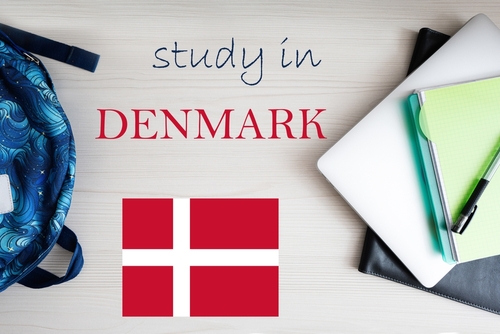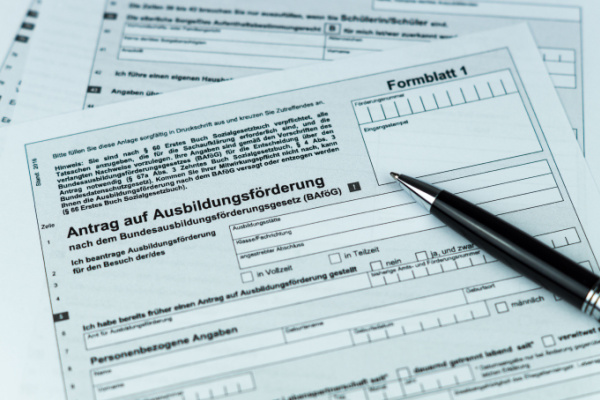Best Study Abroad Programs to Pursue in Denmark
Every year, Denmark, a nation of nearly 406 islands, attracts a considerable number of international students who wish to study abroad. This Scandinavian country in Northern Europe has a rich history of noteworthy academic excellence. Aside from Indians, many students from different parts of the world aspire to pursue higher education in Denmark.
This popular island nation is home to eight renowned Universities that admit qualified international students for different undergraduate and postgraduate level courses. Most study programs are taught in English in higher education institutes for those who wish to study in Denmark but do not understand the Scandinavian language.
The comprehensive education in Denmark Universities is more focused on ensuring students can acquire a host of skills that they can utilize in their workplace. Higher education institutions in Denmark are unlike universities in Italy for international students. The sole motive behind designing the education system differently is to nurture and foster innovation and creativity.
After obtaining a higher degree from a Denmark University, every international student is set to meet the growing global labor market's demands. Compared to the UK, the cost of living is higher in Denmark. However, the tuition fees are pretty cheap. No matter which study program a student chooses, learning a second language entirely for free is possible in every University.
Denmark's education system is highly reputed, and here are the different degrees that higher education institutes in this nation offer.
![Denmark Universities Application Process - Beginners Guide]()
Academy Profession Degree
Regard it as a pre-Bachelor's degree, which a student can obtain after completing a course of study for 1.5 to 2.5 years. The course period depends on the required amount of European credits. Study programs include science, business, and industry. An academy profession degree course assures every student a placement of at least three months. Many opt for this degree to shorten the duration of the Bachelor's degree course to 1.5 years.
Bachelor's Degree
The duration of a Bachelor's degree study program is anywhere between 3 and 4 years. However, the duration varies from one program to another. Universities in Denmark offer a Bachelor's degree in various disciplines besides liberal arts. International students wishing to study in Denmark must submit certificates proving their academic qualifications with signatures and original stamps.
Master's Degree
Each Master's degree study program takes a maximum of two years in Universities in Denmark. A postgraduate program requires students to complete a practical project or dissertation submission besides attending seminars and lectures. An applicant for a Master's degree program must have an undergraduate degree and fulfill other admission requirements.
Ph.D. Programs
A Ph.D. program at a Danish University requires an aspirant to work on a research project independently. The duration of a Ph.D. study program is usually three years. A Ph.D. student gets to do whatever it takes to complete their thesis under the supervision of an expert. Moreover, they get access to the latest information and advanced equipment. A Master's degree is necessary to study in Denmark as a Ph.D. student.
Most Sought-After Study Programs at Denmark Universities
All prestigious colleges and universities in Denmark strictly maintain the highest standard of education and boast a highly qualified teaching faculty. One can choose from various courses to pursue at a renowned Denmark University. Here are some of the sought-after courses that most international students pursue when they study abroad in Denmark.
- Bachelor of Architectural Technology and Construction Management
- Bachelor of Visual Arts
- MSc Agricultural Development
- MSc Environmental Science
- MSc Economics
- MSc Civil Engineering
- MSc Design and Innovation
Entry Requirements for Application to Undergraduate Programs
Applicants who wish to study in Denmark after completing their higher secondary examinations or equivalent must know the application requirements for an undergraduate program.
- Entrance Examination Qualification Certificate – It is a must for an aspirant to appear for common entrance examinations and score good marks. Giving AP tests, GCSEs, or International Baccalaureates is necessary to obtain a qualification certificate, secure admission at a Denmark University, and pursue the coveted Bachelor's degree course.
- English Language Proficiency Certificate – Every University in Denmark that admits international students for undergraduate degree programs checks each applicant's English language proficiency. It has to be similar to an "English B" in the Denmark School System.
Each student has to submit proof of an English language proficiency exam result while applying for a Bachelor's degree program. Common English proficiency tests are TOEFL and IELTS. It is essential for an aspirant to check out English language requirements at the Universities of his or her choice. Some Universities require an "English A" language proficiency grade for specific study programs.
- Academic Transcripts - The complete list of courses an applicant took in secondary and higher secondary school can be called academic transcripts. It is a vital requirement that an aspirant must meet when applying for an undergraduate degree program. Translating is necessary if the academic transcripts are not in Danish or English. Moreover, transcripts must include a conversion table and grades.
Aside from the ones mentioned above, applicants must submit a residence permit as proof of their nationality, a passport copy, and a birth certificate.
Entry Requirements for Application to Postgraduate Programs
Like the esteemed Universities in Switzerland for international students, prestigious Danish Universities check whether an applicant holds a Bachelor's degree and is proficient in English. Moreover, almost every higher education institution in Denmark requires applicants to obtain a particular classification or grade so as to secure admission to their coveted study programs.
It is also essential for interested students to prove their proficiency in the English language when applying for a postgraduate program at a University in Denmark. Aspirants must check the official website of the Universities where they wish to apply to learn about the institutes' grade/classification requirements. Usually, it ranges from first-class to lower second-class honors.
Things to be taken into account before Applying for Universities in Denmark
Select the Coveted Study Program
One must be very clear about the program they wish to study in Denmark before applying to their desired Universities. When applying for the postgraduate level, applicants have to make sure that they apply for a course of study that matches their undergraduate degree.
Choose the Appropriate University
Choosing a few Universities in Denmark that are well-known for offering the undergraduate or postgraduate degree program one aspires to study is prudent. The chances of securing admission will be higher for students if they apply to more than one Danish Universities for their coveted study program. Checking the official websites of the Universities is necessary to obtain admission requirements.
Meet the Language Proficiency Requirements
Universities in Denmark admit those applicants with excellent academic qualifications, high entrance exam scores, and English proficiency, which is similar to securing admission to Canadian Universities.
Applicants not from Denmark must submit proof of their English language proficiency when filing an application for an English-taught program. Therefore, appearing for one of the common English proficiency exams such as CAE, TOEFL, or IELTS is requisite.
Obtaining a Grade A in these English tests can increase an aspirant's chances of bagging a seat at their preferred University. No University admits applicants who cannot even get a Grade B in one of the popular English exams.
Students who apply for a Danish-taught course of study must prove their ability to communicate eloquently in Danish to secure admission. Proving their proficiency in the Danish language requires them to score excellent grades in the Danish as a Foreign Language test.
Application Documents
Aspirants who want to study in Germany at an illustrious University must submit these necessary documents.
- A degree that Danish Universities recognize
- Higher secondary examination result or something equivalent to a Danish high school education certificate
- English language proficiency score if students apply for an English-taught program
- Danish language proficiency score if students apply for a Danish language-taught program
It is a must for non-EEA/EU students to pay 100 EUR for University application fees. Many Universities are likely to waive the fee if an applicant can show a valid residence permit to live in Denmark for education.
University Application Deadline
Those who wish to study abroad, especially in Denmark, must file their application for the coveted study program much before the deadline. The application for international students usually begins on the 1st of February and continues up to the 15th of March every year for English-taught programs. Most Universities issue letters of acceptance to selected applicants from the 28th of July.
Portals to Apply for Scholarships in Denmark for Higher Education
Even though pursuing higher studies in Denmark for international students is affordable, their chances of bagging scholarships are always there. Getting a scholarship can be immensely beneficial for a hardworking yet needy student who may struggle to pay the tuition fee, which ranges between 6,000 EUR to 17,000 EUR.
A qualified student can choose from various partially-funded or fully-funded scholarship options. Here are some most sought-after scholarships in Denmark.
- Scholarship funded by the Danish Government for eligible students: To learn more about this scholarship, students must check the Government of Denmark's official website.
- Danish State Educational Support scholarship: Check out the Danish education support Agency's official site to learn the rules and detailed information on this scholarship.
- Erasmus Mundus Scholarships for Master's Degree Programs: Visit the official site of Erasmus Mundus to obtain information about the scholarship and registration requirements.
Apart from the above-mentioned ones, some other popular scholarships eligible students can get to study in Denmark include the University College of Northern Denmark scholarship, the Technical University of Denmark scholarships, and Aarhus University scholarships.











.jpg)

